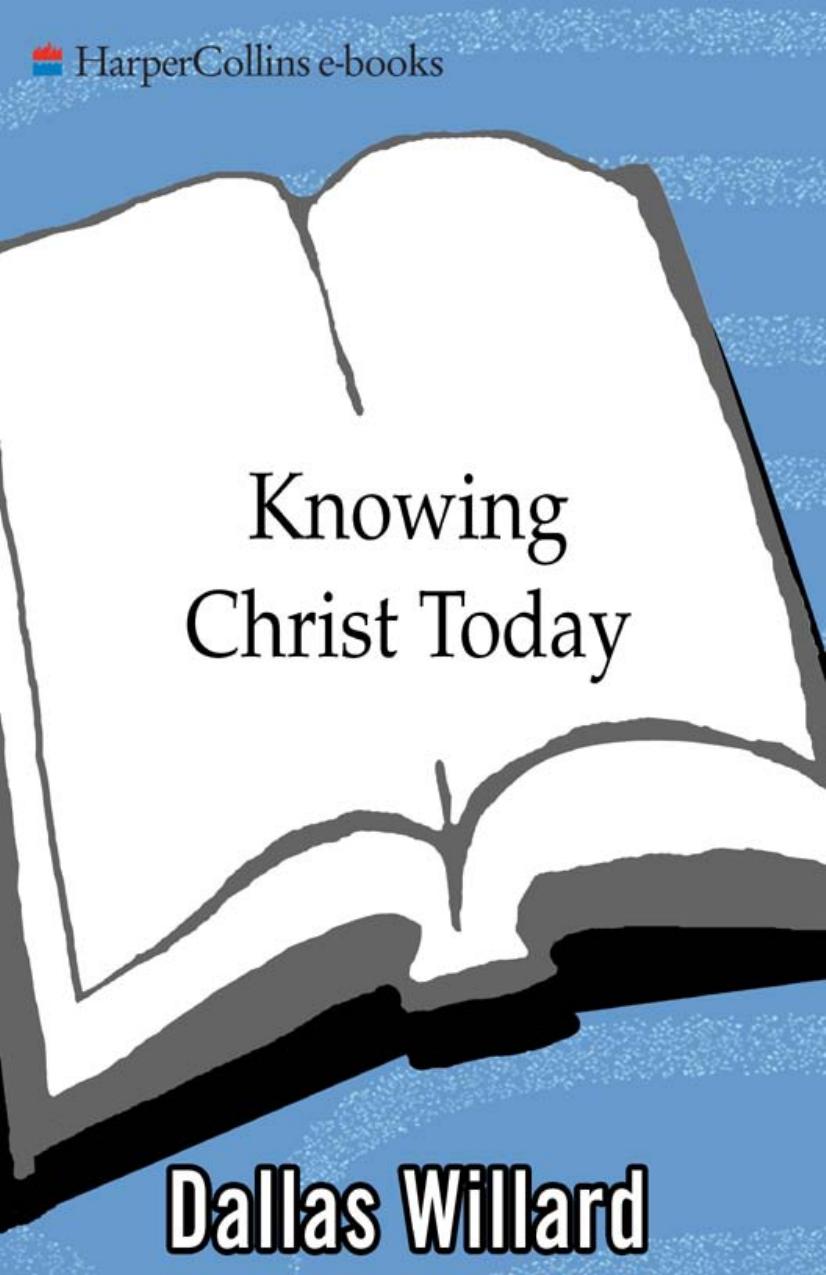Knowing Christ Today: Why We Can Trust Spiritual Knowledge by Dallas Willard

Author:Dallas Willard [Willard, Dallas]
Language: eng
Format: epub, pdf
Tags: Religion, Christianity, General
ISBN: 9780062311795
Google: tmlWuLSXu9sC
Amazon: 0062311794
Publisher: HarperOne
Published: 2009-05-25T16:00:00+00:00
BUT IS REALITY SECULAR?
The result of our previous chapter indicates a substantial basis for questioning the truth of those assumptions. Since there is such a vast nonphysical (spiritual) reality, as we have discovered, secularism itself, as a view of reality and knowledge, cannot stand as an unquestioned truth, to say the very least, or as something that without question can govern our approach to any subject matter, much less that of religion and the Bible.
George Bernard Shaw, a clever but shallow thinker, used to say that the phrase “Catholic university” was an oxymoron, a self-contradictory expression. What he meant was that, if you are a Catholic, you are committed to views that could not be critically examined by you and made to stand the test of free inquiry as to truth and reason. That is what a university is supposed to do to all views. But if that was true of the Catholic universities he had in mind, it certainly is true of the universities that proudly describe themselves as “secular” today.6
Is reality secular? Is adequate knowledge secular? And is that something that has been established as a fact by thorough and unbiased inquiry? Is that something that today’s “secular” universities thoroughly and freely discuss in a disciplined way? Certainly not! Nowhere does that happen. And any suggestion that it should happen would not be treated as a serious intellectual proposal—if it were considered at all.
It is now simply assumed that every field of knowledge or practice is perfectly complete without any reference to God as real and relevant, and all the more so without any knowledge of God and his activities. It may be logically possible that this assumption is true. But is it true, and is there reason to think that it is true? Could there be knowledge on that point, knowledge that could be taught as such before the objectively critical mind? Published in peer-review professional journals? It certainly hasn’t been done, nor is it on the horizon.
So we are left with two reasons given for ruling out the intervention of God—miracles, for short—in human affairs. One is that claims to divine intervention lead to such foolishness and harmfulness that all such claims should be rejected out of hand. The second is the “deistic” argument that it is, somehow, beneath God’s dignity to interact with human beings or with the universe he has, it is granted, created. Neither of these “reasons” has much in favor of it when carefully considered. God’s “dignity,” as conceived of by deists, actually seems far too much like the “dignity” of human beings filled with their own self-importance. Anyway, how could deists, on their premises, know that much about God’s character and personality?
On the other hand, although all sorts of foolish and harmful things are no doubt done by those who claim to be guided or touched by God, that is no reason to think God had anything to do with those things or to think, by contrast, that those who, with exactly similar claims, do extraordinarily good and wise things are not guided and empowered by God.
Download
Knowing Christ Today: Why We Can Trust Spiritual Knowledge by Dallas Willard.pdf
This site does not store any files on its server. We only index and link to content provided by other sites. Please contact the content providers to delete copyright contents if any and email us, we'll remove relevant links or contents immediately.
| Animals | Cities & Architecture |
| Comics & Manga | Fantasy & Science Fiction |
| Fashion | Flowers & Landscapes |
| Humorous | Mandalas & Patterns |
| Religious & Inspirational | Science & Anatomy |
On Writing A Memoir of the Craft by Stephen King(4223)
The Doodle Revolution by Sunni Brown(4052)
A Simplified Life by Emily Ley(3583)
Mummy Knew by Lisa James(3176)
Marijuana Grower's Handbook by Ed Rosenthal(3127)
Paper Parties by Erin Hung(3048)
Better Homes and Gardens New Cookbook by Better Homes & Gardens(2965)
Figure Drawing for Artists by Steve Huston(2805)
Draw Your Day by Samantha Dion Baker(2716)
The Genius of Japanese Carpentry by Azby Brown(2617)
Japanese Design by Patricia J. Graham(2563)
Lions and Lace by Meagan Mckinney(2498)
Dangerous Girls by Haas Abigail(2483)
The Curated Closet by Anuschka Rees(2395)
Zero to Make by David Lang(2351)
How to Make Your Own Soap by Sally Hornsey(2346)
The Wardrobe Wakeup by Lois Joy Johnson(2240)
The Code Book by Simon Singh(2221)
The Checklist Manifesto by Atul Gawande(2209)
